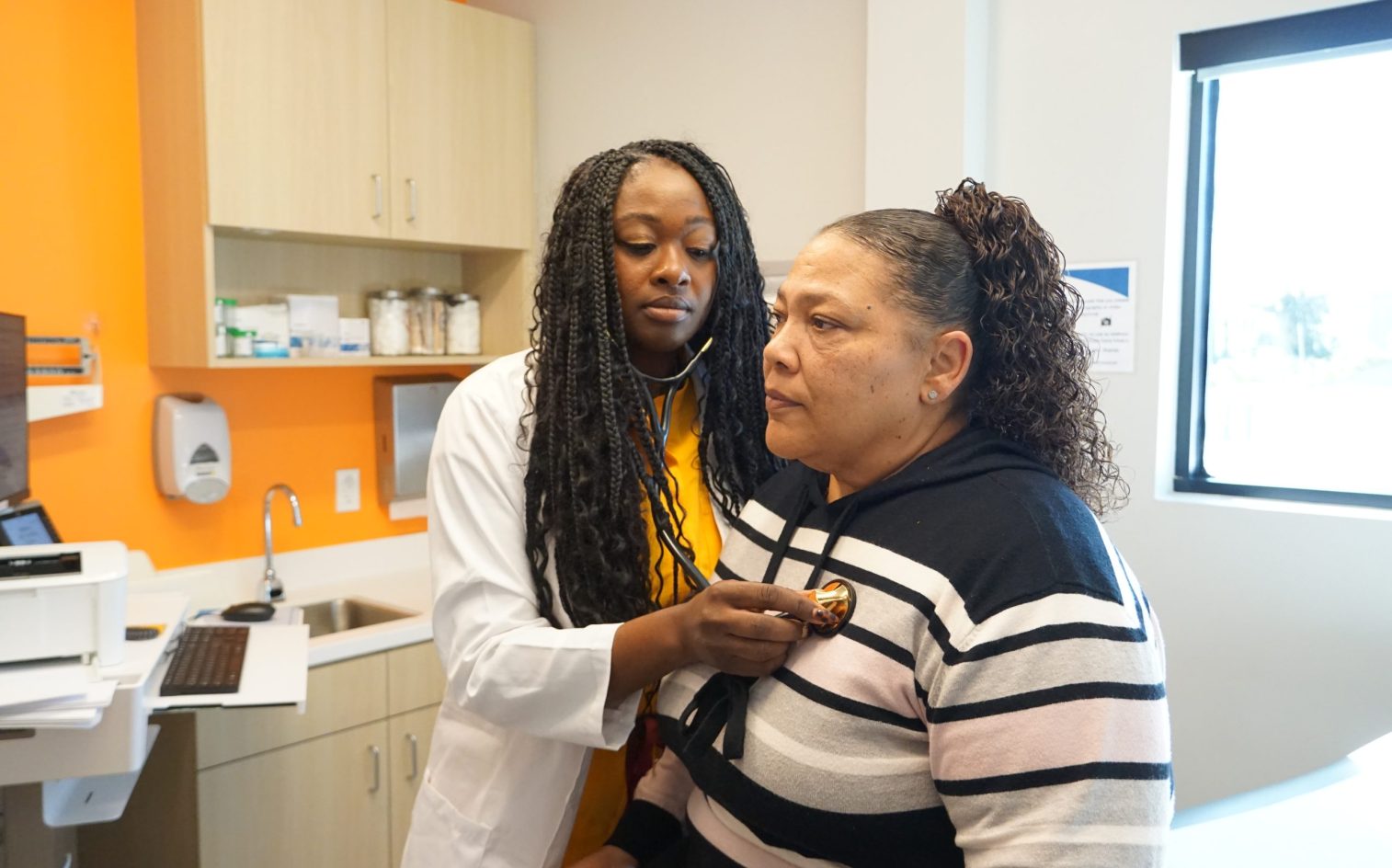Dorothy Nelson spent most of her life avoiding doctors.
Seeking medical care had always felt like an uphill battle. She had grown used to feeling dismissed—her concerns brushed aside as unimportant or even imagined. Years of feeling unseen by doctors had a negative impact on Dorothy’s view of health care. And she knew her experience echoed a broader history of inequity in health care faced by many Black Americans.
“Honestly, I felt like I was just another Black person who doesn’t go to the doctor,” Dorothy remembers. “I didn’t realize there was a better kind of care out there.”
Reaching a breaking point
For years, Dorothy managed to stay healthy enough to justify to herself that she didn’t need a primary care provider.
Everything changed when she was struck with extreme and unbearable abdominal pain. Without a primary care doctor or PCP, Dorothy relied on emergency room visits to try to understand and manage her pain. The care she received felt rushed, impersonal and temporary, and each visit routinely ended in a suggestion to follow up with her primary care provider. But without a medical home, Dorothy struggled to stay on top of the doctor’s suggestions, and without consistent follow-ups, her health rapidly worsened.
Even then, she didn’t feel ready to commit to trusting one clinician. “I was so afraid,” Dorothy remembers. “But I’d been avoiding the doctor for such a long time, and I didn’t feel ready to face that yet.”
The decision was taken out of her hands when she found herself again in the ER but now facing an onslaught of diagnoses. Heart failure, a blood clot in her lung and severe diverticulitis—a condition where the digestive tract becomes severely inflamed and painful—had escalated to the point where they could no longer be ignored. Faced with potentially fatal complications and unmanageable pain, Dorothy realized she needed to find a PCP to help her manage her health.
But breaking through her fear and mistrust required more than medical intervention—it required a provider who could see beyond her symptoms and understand her story.
Representation and trust
Ebony Funches, a Doctor of Nursing Practice at Venice Family Clinic, was unlike any provider Dorothy had ever seen. From their first appointment, Dorothy knew she had found an ally. Compassionate, direct and patient, Funches’ evident dedication immediately assuaged Dorothy’s doubts.
“Never in my whole life have I had a doctor talk to me the way Ebony did,” Dorothy said. “Right away, I knew she saw me for who I was. I knew she could relate to me. I knew she heard me.”
Dorothy wasn’t the only one who recognized the value of their connection. “Representation is incredibly important in providing and receiving effective care,” Funches said. “When patients see someone who understands their lived experiences, it can help break down barriers and create a foundation for trust. For Dorothy, I think that connection was key.”
The impact of connection
“Ebony’s honesty really made a difference,” Dorothy said. “She didn’t sugarcoat anything. She told me exactly what was going on and what I needed to do, but she explained it in a way that made sense.”
Building trust with Dorothy required intentional strategies. Funches addressed Dorothy’s immediate health needs, ordering overdue tests and coordinating specialist referrals. Next, she worked closely with Dorothy to build a step-by-step care plan that prioritized transparency and consistent follow-ups, ensuring that Dorothy felt heard and involved as they made every decision together. Funches checked in regularly, which helped reassure Dorothy that this time, she wouldn’t fall through the cracks.
Funches also made space for Dorothy’s emotional recovery. “Dorothy had been carrying so much pain—not just physical but emotional,” Funches said. “As she started to trust me, she opened up about personal struggles she hadn’t felt safe sharing before. In my opinion, making space for her to express herself was just as important to her healing journey as treating her physical symptoms.”
Funches’ validation combined with an accessible care plan empowered Dorothy to take an active role in her health, something she hadn’t imagined was possible. “Dr. Funches didn’t just treat my body—she helped me heal my mind,” Dorothy said. “She made me believe that I could get better.”
A brighter future
With Funches supervising her care, Dorothy’s health began to stabilize.
Her heart failure, once out of control, is now classified as compensated—a major milestone that means her heart is functioning well enough to meet her body’s needs. Pain that once defined her daily life has become less frequent and more manageable, thanks to a combination of medication adjustments, specialist referrals and lifestyle interventions such as improved diet and light exercise.
Dorothy’s improved health has given her a new lease on life. She’s now able to engage in daily tasks that once felt impossible. She’s even started taking short walks around her neighborhood—something she never imagined herself doing just a year ago. “I can finally do the things I need to do without feeling like I have to stop and catch my breath every five minutes,” Dorothy said. “I have my life back.”
This transformation didn’t happen by chance—it was built on trust, compassion, and a care plan tailored to Dorothy’s unique needs.
“Dorothy’s story really shows what happens when trust enters the equation,” Funches said. “By listening and meeting her where she was, we could build a partnership. It wasn’t just about medical care—it was about helping her feel safe enough to take the steps she needed to care for herself.”
“I never thought I could trust a provider the way I trust Ebony,” says Dorothy. “She genuinely saved my life.”
